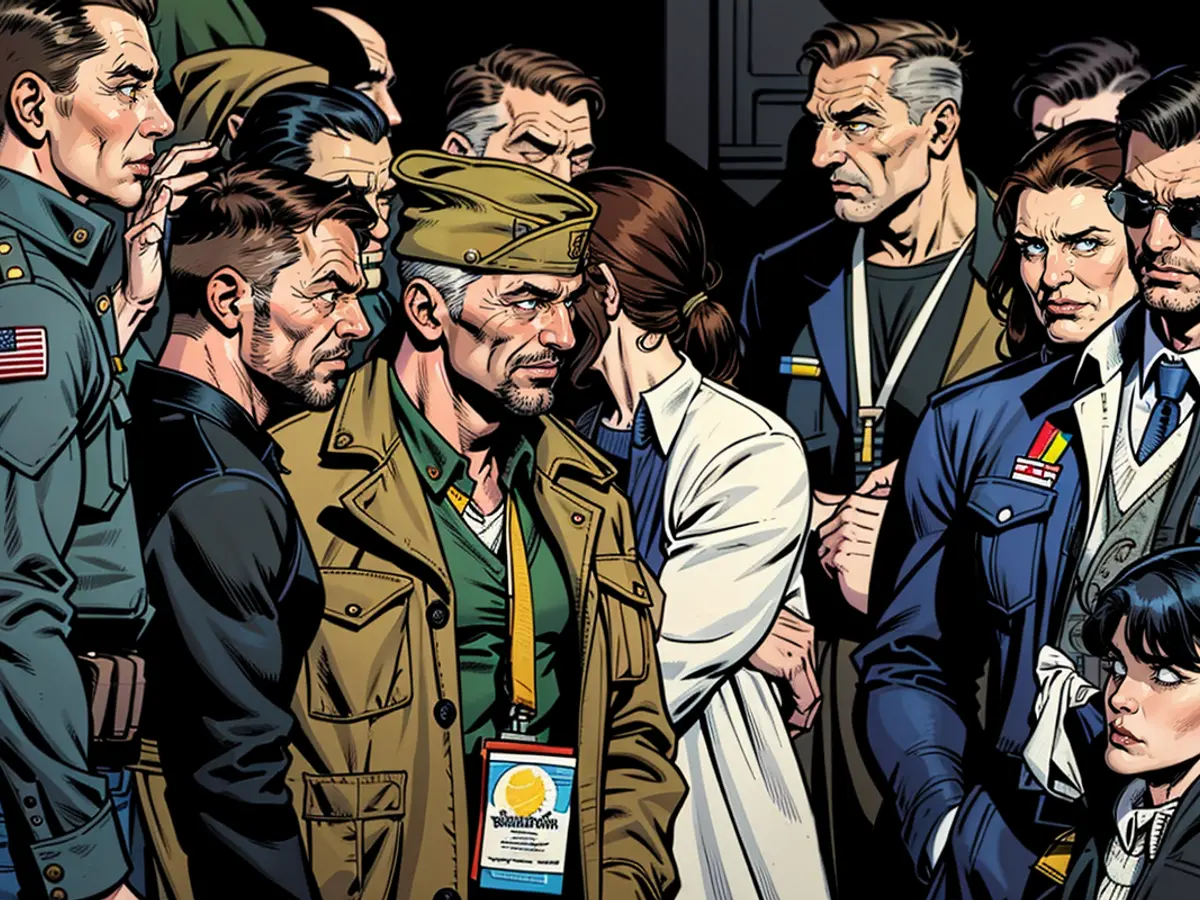A new D-Day is upon us.
The upcoming peace summit in Switzerland won't bring peace to Ukraine. For true peace, a "real alliance" is what Joe Biden referred to in Normandy.
Recently, Western countries celebrated the 80th anniversary of the Allies landing in Normandy. The US President mentioned Russia's war against Ukraine, committing to support the attacked country. He also highlighted the importance of alliances in the fight against Hitler's Wehrmacht. He's right. However, these alliances must be present and willing to help.
Since the beginning of the invasion, Ukraine has struggled to garner international support. Initially, this was successful, but assistance is now dwindling. In the beginning of the war, most UN member states supported resolutions demanding an immediate withdrawal of Russian troops. But today, the situation looks quite different. This is due to the West's unclear strategy and cautious approach towards Russia. Olaf Scholz is leading the way.
The alliance against Russia is also visible in Biden's decision not to attend the Ukraine peace summit in Switzerland. Instead, he's sending Vice President Kamala Harris and his National Security Advisor Jake Sullivan on June 15 and 16 to the Luzern Hotel Bürgenstock. If rumors are true that Biden prioritized his campaign against Donald Trump over discussing Ukraine's fate, then the reluctance of China, India, and Saudi Arabia to send representatives to Luzern seems understandable. What's the point? Biden didn't come either.
The conference's objectives were initially high hoping to establish a just and lasting peace based on international law and the UN Charter. However, only representatives from around 50 countries have confirmed their attendance so far. Zelenskyy's peace plan won't be discussed. The talks are limited to issues such as navigating the Black and Azov Seas, energy security for Ukraine, and exchanging prisoners of war. But even these topics have concerns. For instance, how can NATO assist Ukraine in the exchange of prisoners? It's unclear.
Russian diplomacy lamented Russia's exclusion from the invitation. They claim their presence is essential to foster productive discussions. However, Russia has no interest in peace. Putin desires the annexation of Ukraine. Yet, they demand an invitation and seek peaceful solutions. If these so-called "humanists" and "doves" still haven't realized the nature of Putin's diplomacy and his "peaceful" intentions, then the situation is dire.
Advocates for immediate negotiations with Russia often misunderstand the process. They don't understand how conversations would take place, who would lead them, or what conditions need to be met. They ignore the diplomatic history that the initiator of negotiations is usually the weaker party unless the enemy surrenders. But Putin's Russia won't surrender.
It's not hard to imagine what Putin would demand: "demilitarization and denazification," and the conditions of the Istanbul meeting in March/April 2022. Essentially, Russia wants the end of Ukraine's sovereignty and its inability to defend itself militarily. The result would be Ukraine being under direct control and subordination to the Moscow government. This would end Ukraine.
The supporters of immediate negotiations must consider how to influence Russia, ensure Ukraine's survival, and guarantee the Russian leadership's compliance with any agreements. We know the Kremlin disregards diplomatic agreements.
To make Putin consider a real peace conference, significant actions are necessary. Firstly, Ukraine needs to strengthen its military position. This involves supplying long-range missiles, aircraft, air defense systems, and ammunition. Additionally, Ukraine should be allowed to use weapons on Russian territory, targeting only military objects.
Taking a strong stand and issuing a calm warning to Moscow, urging them to use "all forces and means" against Russia, could deter Kremlin strategists who are banking on war. What's crucial is having a clear, single strategy among the Western world to restrain Russia and Putin's revanchism. The West should explicitly state: What should be the outcome of this conflict? Are NATO nations prepared to bear the consequences of the aggressor's actions and threats? Should there be negotiations with Putin for a revamped global division?
It's not sufficient to devise this strategy; we must consistently act upon it. By continually second-guessing ourselves and showcasing our reluctance to face up to Russia, the West conveys the impression that we are in decline and morally incapable of safeguarding our interests. Likewise, this sentiment is broadcast to the global South, which might be inclined to side with Putin.
Allies of Ukraine need to conquer their fear of escalation. Putin is terrorized by the prospect of NATO aiding Ukraine, which would signify another European D-Day, and it's high time for it. Biden should live up to his statement on "real alliances" and act accordingly. Negotiations can't be won through unceasing prayers. As distressing as it might sound: Someone akin to Putin needs to be brought to the negotiation table with strength. Else, every approaching conference will wind up like the one in Lucerne—ineffective and devoid of any chance for lasting peace.

Read also:
- Despite the upcoming peace summit in Switzerland, Russia's attack on Ukraine continues to pose a significant challenge, and the US President, Joe Biden, has reiterated his support for Ukraine.
- Guest contributions from diplomats like Boris Bondarev, a former Russian diplomat who left his post in protest of Russia's war against Ukraine, provide valuable insights into the complex situation and the need for a "real alliance" to achieve lasting peace.
- Switzerland, known for its neutrality, hosts the peace talks, but the attendance of key players like China, India, and Saudi Arabia is missing, leaving the potential for effective resolution unfulfilled, raising questions about Joe Biden's strategy towards Russia and peace talks.








